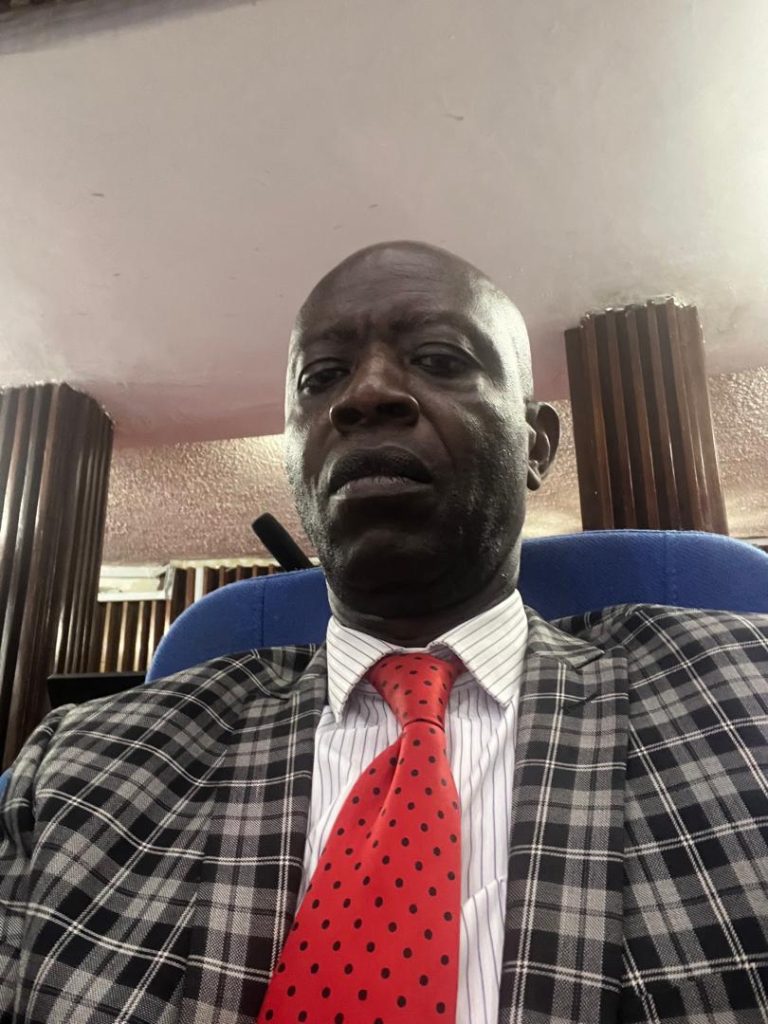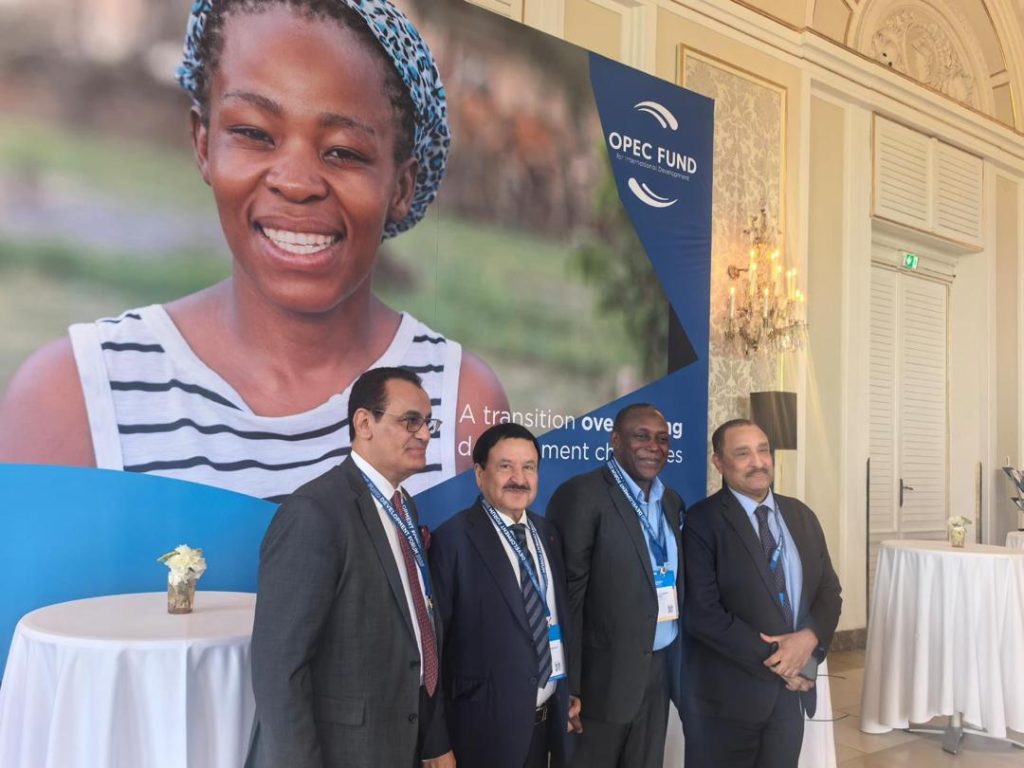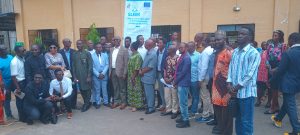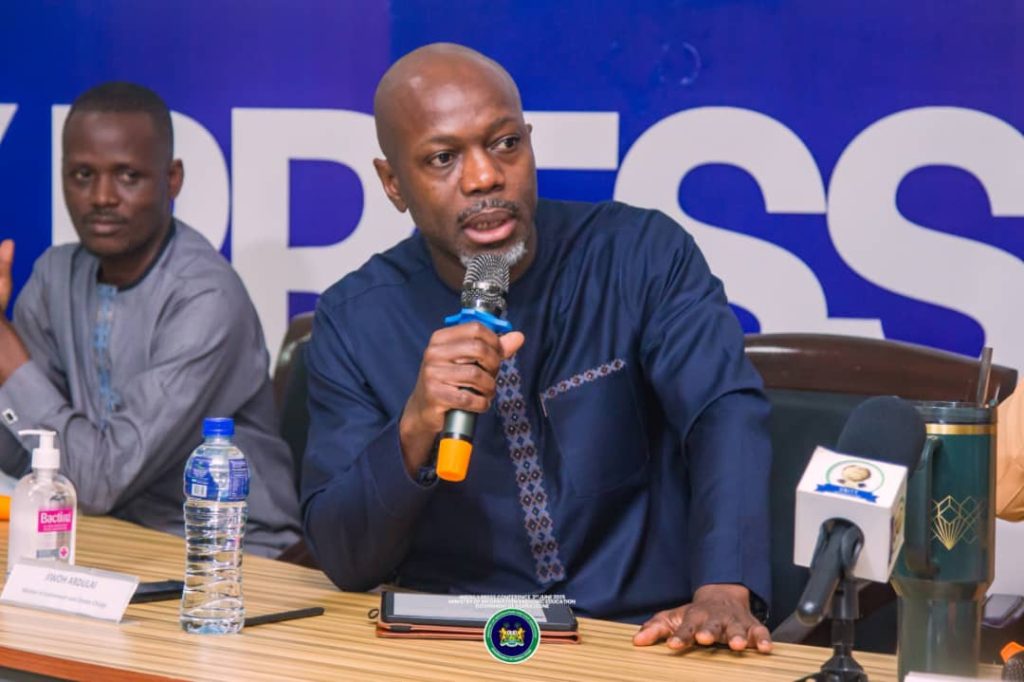Hon. Kamara Presses for Expanded Infrastructure and Agricultural Research Funding

By Abdul Rahman Bah
During a vibrant parliamentary debate on the Finance Act 2025, Hon. Alusine Bash Kamara, representing Karene District, delivered a powerful speech focused on improving the well-being and quality of life for Sierra Leoneans. His address tackled critical issues of infrastructure, agriculture, and social protection, urging the government to make substantial investments in these areas to uplift the nation’s living standards.
Hon. Kamara expressed heartfelt appreciation to the Ministry of Finance for prioritizing infrastructure development in the 2025 budget, highlighting key projects such as the Kabba Ferry and Batkanu Bridge, which he views as vital to economic connectivity. However, he called for further attention to local rivers that are crucial to regional development. Specifically, he pointed to the Bale River, connecting Patiful to Batkanu, and the Banthoroh River, linking Mateboi with Batkanu. He argued that these rivers are lifelines for surrounding communities and should be incorporated into national infrastructure plans to ensure comprehensive regional development.
With the national budget of NLe 497.3 million, supported by international partners like the World Bank, the African Development Bank (AfDB), BADEA, and the Kuwait Fund, Hon. Kamara emphasized that the funds should not only stabilize the economy but also address the pressing needs of Sierra Leone’s poorest communities. He painted a vivid picture of rural Sierra Leone, where inadequate roads hinder economic growth and social mobility. In light of this, he advocated for more extensive infrastructure projects, such as the construction of the Sanda-Magbolontor Bridge linking Karene and Port Loko Districts, and the improvement of crucial roads like the Kabata Junction to Gbinti Road, Makeni to Kamakwie Road, and Buya-Safarokoh Road. These roads, he argued, are critical for the success of the Feed Salone initiative and the nation’s broader development.
Hon. Kamara also delved into the importance of agriculture and food security, praising the government’s Feed Salone agenda, which seeks to achieve food security in line with the United Nations Sustainable Development Goals. However, he warned that the success of this initiative depends heavily on effective agricultural research, a responsibility currently entrusted to the Sierra Leone Agricultural Research Institute (SLARI). He pointed out that SLARI’s efforts in reaching remote farmers are insufficient, hindering the potential impact of its programs. Expressing grave concern over the inadequate NLe 17.0 million budget allocated to SLARI, Hon. Kamara called for significantly increased funding to ensure the institute’s success in addressing the challenges of crop yields, sustainable farming practices, and post-harvest losses. Without enhanced support, he warned, the Feed Salone agenda could fall short of its ambitious objectives.
Shifting focus to social protection, Hon. Kamara emphasized the urgent need for a robust social safety net, particularly for vulnerable populations such as the elderly. He highlighted that many elderly individuals, who have contributed significantly to the country’s development, remain excluded from the National Social Security and Insurance Trust (NASSIT) system. He proposed closer collaboration between the National Social Protection Secretariat and the National Commission for Social Action (NaCSA) to create a more unified and effective approach to social protection.
While recognizing the Ministry of Finance’s efforts in allocating Le 4 billion to the Social Safety Net program, Hon. Kamara argued that the funds are insufficient. He pointed to the case of Bo District, where 5,266 elderly individuals receive a quarterly cash transfer of Le 1,047,000, which sums up to over Le 5.5 billion per quarter. The full annual cost, not including operational expenses, reaches over Le 22 billion. Hon. Kamara expressed concern about the sustainability of these cash transfers, particularly in Karene District and the Western Area, and called for a significant increase in funding for the Ministry of Employment, Labour, and Social Security to ensure the needs of the elderly are adequately met.
In conclusion, Hon. Kamara’s impassioned speech underscored the critical interconnectedness of infrastructure, agriculture, and social protection in building a more equitable and prosperous Sierra Leone. He stressed that only through substantial investment in these key areas can the government ensure a better future for all Sierra Leoneans.





